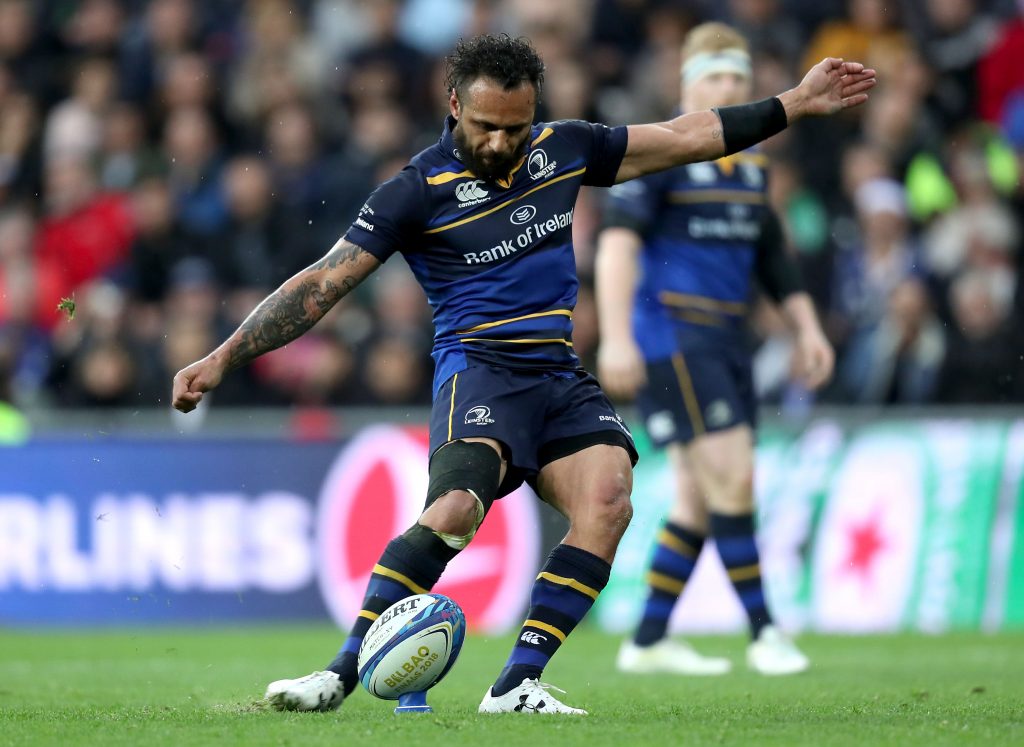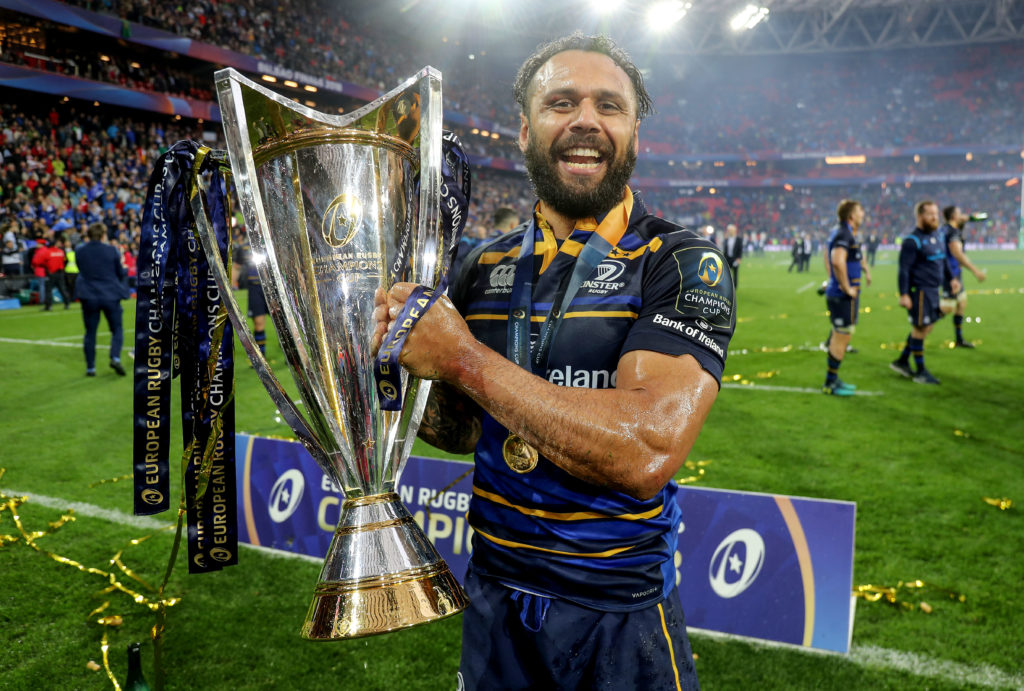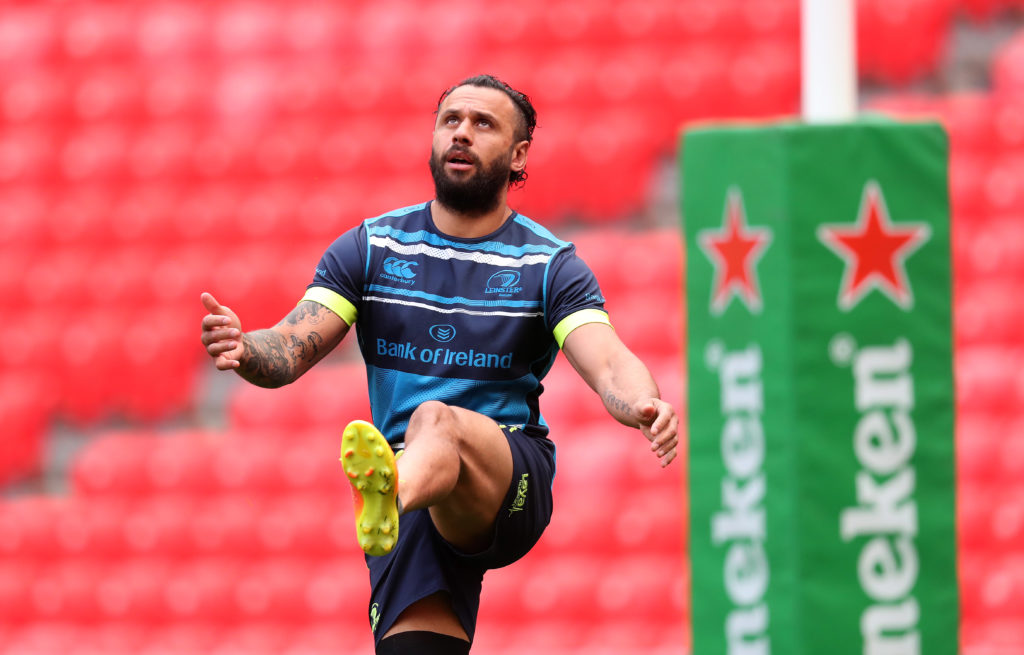THESE were the words of Isa Nacewa recently in Dublin talking to a corporate group on leadership. 8/10 is a principle ingrained in Nacewa in Auckland watching the likes of Doug Howlett and Christian Cullen demand more of themselves with every performance.
Why you may wonder am I writing about a Leinster man this week. Well I had the pleasure to spend some time with Isa this as I flew him over from New Zealand, where he now resides with his family, to deliver a series of talks with my colleagues at a tech company called Peptalk.
At Pep we are trying to repair the world of work through awareness of wellbeing and health as key aspects of high performance. We use expert partners to deliver our message and this week that partner was Isa Nacewa. And what a week it was.
I watched him speak of breaking the game into 80 one minute battles as a method to maintain concentration and focus on the present moment and allow him an opportunity to recover quickly from mistakes.
So much of what he spoke about resonated to me as a Munster fan. I wore my red whenever possible to ensure Isa knew where my loyalties lie. But one issue we spoke of made me realise there is a gulf in culture between where Leinster are at right now and where Munster find themselves.

Culture is so important in high performance environments. In a culture of excellence high standards of behaviour on and off the field are set. Standards relate to how your players carry themselves, the honesty of the communication across the organization and measurements used to ensure excellence in everything you do.
Nacewa spoke of the culture at Leinster. When he left in 2013, Leinster were in a very strong position having won five trophies in five years. There were many senior leaders in the squad (not dissimilar to Munster when they won two Heineken Cups in three years)
However, the difference comes on his return in 2015. Standards had dropped significantly. Some players motivations were being questioned. The squad weren’t performing to the standards they had set themselves and it culminated in their Pro 14 final loss to Connacht.

He spoke of the work he and Johnny Sexton did to rebuild the structure and how it took three years to get them back to where they were and then break new ground with an unprecedented double. The fascinating bit about this was the fine lines that exist between success and failure.
While I listened to Isa it struck me that Munster have similarly over the years let their standards slip. The difference being either the leaders on the field or the leaders in the management structure have not been strong enough to break that habit and drive things upwards.
One of the key elements of what Nacewa spoke about was the way Leo Cullen and Staurt Lancaster pursue honesty in all communications with the players. There are 55 senior players in the Leinster squad which means that on any given match week approximately 30 players are disappointed not to be involved.
Instead of letting discontent fester Leo Cullen will speak with every one of those players individually to make sure they understand why they aren’t involved. This is so simple but so powerful. Another aspect of the Leinster culture now is one where academy players are given a chance.
It is essential to the development of young players that they feel they have a chance of progressing into the first team. Leinster have produced player after player who clearly understand their role and are aware that a good performance gives them a chance of being involved further.

It is clear that everyone in the Leinster squad has an equal footing when it comes to team selection and current form is all that matters. Can we say the same for Munster? Are Munster not producing young talent or is it the case that no matter how good you are come the big games you know you have no chance of being involved?
The culture at Leinster breeds confidence into the younger players and makes the senior players push themselves repeatedly as they know they are not automatic selections. This is a philosophy that Isa has brought into his post rugby career in the financial world.
He accepts that there are younger people in his office who know more about this world than he does so together they are building a culture of work that drives them all to be better at what they do through open, honest conversations and an acceptance that even in the corporate world we can all strive to deliver excellence every day.
In these difficult times maybe we can reflect on what that means for us in our behaviours towards each other. I know for me I am going to try maintain an 8/10 minimum in my positivity and calm as we all try to get through these difficult times together.









